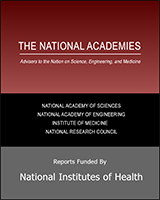From: Immunization Safety Review: Vaccines and Autism

NCBI Bookshelf. A service of the National Library of Medicine, National Institutes of Health.
The committee concludes that the evidence favors rejection of a causal relationship between thimerosal-containing vaccines and autism.
The committee concludes that the evidence favors rejection of a causal relationship between MMR vaccine and autism.
In the absence of experimental or human evidence that vaccination (either the MMR vaccine or the preservative thimerosal) affects metabolic, developmental, immune, or other physiological or molecular mechanisms that are causally related to the development of autism, the committee concludes that the hypotheses generated to date are theoretical only.
The committee concludes that because autism can be such a devastating disease, any speculation that links vaccines and autism means that this is a significant issue.
The committee recommends a public health response that fully supports an array of vaccine safety activities. In addition the committee recommends that available funding for autism research be channeled to the most promising areas.
At this time, the committee does not recommend a policy review of the licensure of MMR vaccine or of the current schedule and recommendations for the administration of the MMR vaccine.
At this time, the committee does not recommend a policy review of the current schedule and recommendations for the administration of routine childhood vaccines based on hypotheses regarding thimerosal and autism.
Given the lack of direct evidence for a biological mechanism and the fact that all well-designed epidemiological studies provide evidence of no association between thimerosal and autism, the committee recommends that cost-benefit assessments regarding the use of thimerosal-containing versus thimerosal-free vaccines and other biological or pharmaceutical products, whether in the United States or other countries, should not include autism as a potential risk.
The committee reaffirms its previous recommendation to use standard and accepted case definitions and assessment protocols for ASD to enhance the precision and comparability of results from surveillance, epidemiological studies, and biological investigations. Studies should also address the heterogeneity in the etiology of ASD and the spectrum of clinical presentation.
The committee reaffirms its previous recommendation to conduct clinical and epidemiological studies of sufficient rigor to identify risk factors and biological markers of ASD in order to better understand genetic or environmental causes of ASD.
Surveillance of adverse events related to vaccines is important and should be strengthened in several ways:
The committee recommends that standardized case definitions for adverse events be adopted.
The committee recommends that formal guidelines or criteria be developed for using VAERS data to study adverse events.
The committee recommends the continued use of large-linked databases, active surveillance, and other tools to evaluate potential vaccine-related adverse events.
The committee supports the development of Clinical Immunization Safety Assessment (CISA) centers to improve understanding of adverse events at the individual level.
One area of complementary research that the committee continues to recommend is surveillance of ASD as exposure to thimerosal declines.
The committee recommends increased efforts to quantify the level of prenatal and postnatal exposure to thimerosal and other forms of mercury in infants, children, and pregnant women.
Because chelation therapy has potentially serious risks, the committee recommends that it be used only in carefully-controlled research settings with appropriate oversight by Institutional Review Boards protecting the interests of the children who participate.
Better risk-benefit communication requires attention to the needs of both the scientific community and public communities. Many scientists need to develop a more comprehensive understanding of what risk-benefit communication entails and the rich knowledge base that can be used to design strategic communication programs. Thus, the committee recommends developing programs to increase public participation in vaccine safety research and policy decisions and to enhance the skills and willingness of scientists and government officials to engage in constructive dialogue with the public about research findings and their implications for policy development.
From: Immunization Safety Review: Vaccines and Autism

NCBI Bookshelf. A service of the National Library of Medicine, National Institutes of Health.